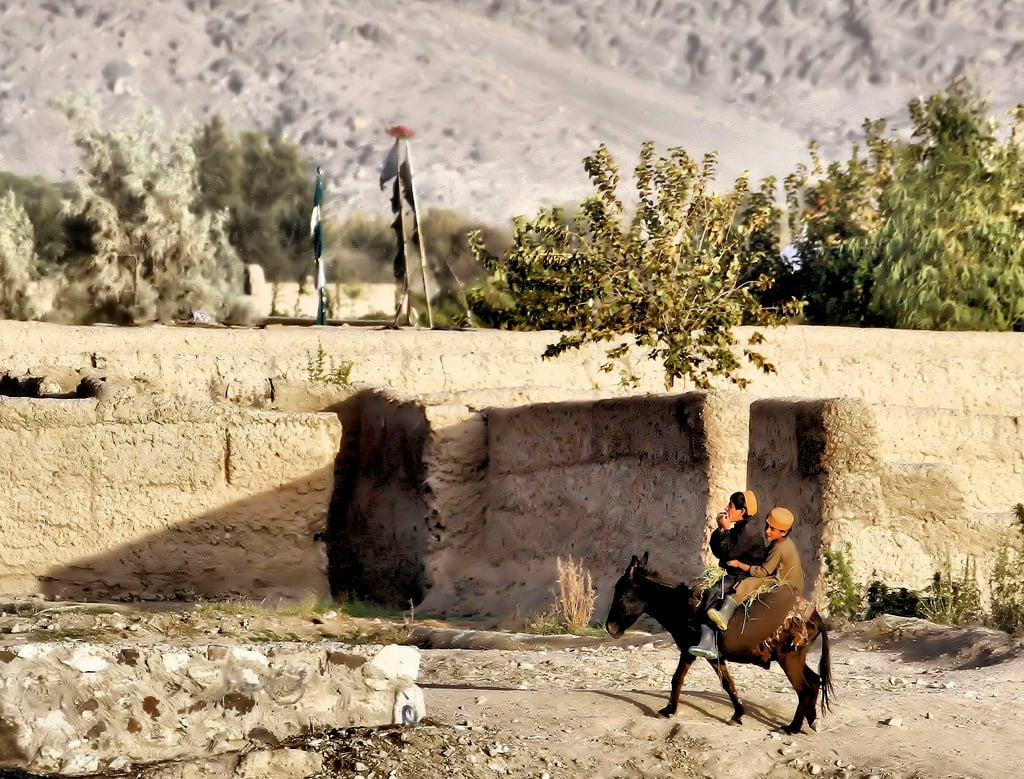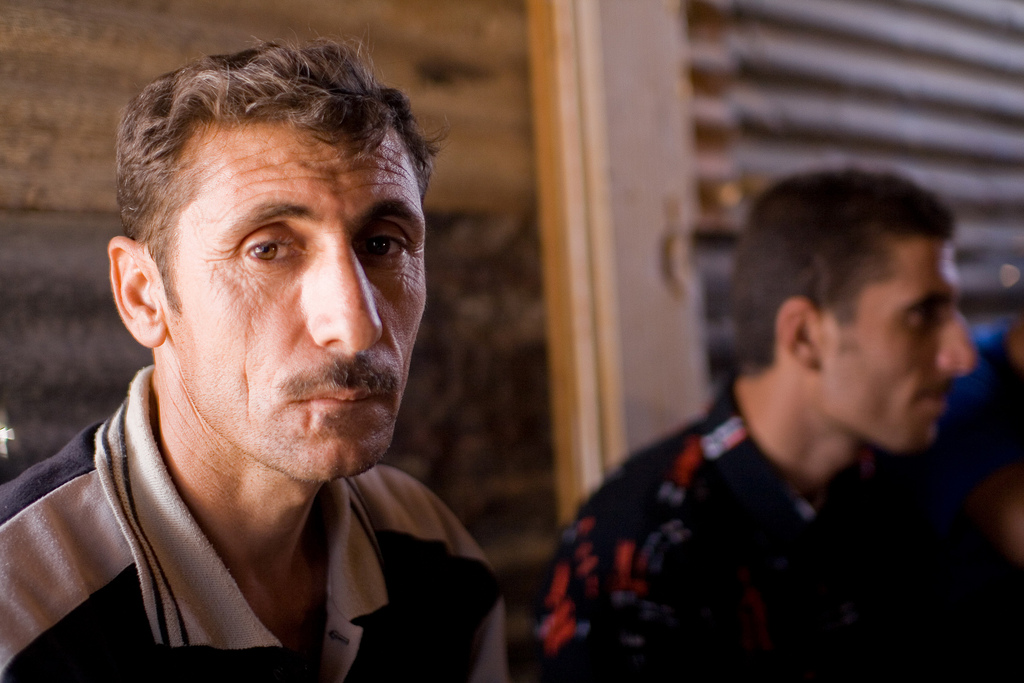
UK Parliamentary Recognition of Kurdish Genocide in Iraq: What This Means for Minority Groups Today
On the 25th Anniversary of the Halabja poison gas attack against Iraqi Kurds, Awaz Raoof, a UK lawyer currently assisting MRG’s legal cases team, reports back from the UK’s House of Commons.
On 28 February 2013, the UK’s House of Commons formally recognised the genocide against Iraqi Kurds, coinciding with the 25th Anniversary of the ‘Anfal Campaign’ – a programme designed by the Ba’athi regime to systematically exterminate Kurds from Iraq. The House agreed to encourage governments, the EU and the UN, to formally recognise the genocide, believing that this would enable the Kurdish people to achieve justice, and demonstrate the UK’s support for human rights, made all the more important in light of the slaughter in Syria, and the possible use of chemical weapons there.

The Kurds
The Kurdish ethnic minority number between 30 and 40 million people, and are believed to descend from Indo-European tribes which migrated to the Zagros Mountains around 4000 years ago. Today, Kurds are split across Turkey, Iraq, Iran, and Syria, with populations also living in Azerbaijan and Armenia. There are over five million Kurds in Iraq, constituting 20 percent of Iraq’s population
Kurds have a history of persecution and forced assimilation, including by the British during the 1920s. The Ba’athi regime’s campaign of ‘Arabisation’ and extermination of Kurds is often recalled with reference to the Anfal Campaign, which involved their forced displacement, aerial bombardment, chemical attacks, internment camps, torture, extra-judicial killings, and mass graves. The bombing of the city of Halabja on 16 March 1988 with mustard gas and suspected nerve agents resulted in the horrific death of 5,000 people, and injuries to an estimated 10,000 more. Around 180,000 people were killed between 1987 and 1988, although the true scale of the killing between the 1960s and 1990s is unknown. Widows, broken families, thousands of destroyed villages, and physical and psychological scars and illnesses, continue to tell the tale of the horrendous acts committed.
Was this genocide?
The UK Government defended its recent failure to formally recognise the Kurdish genocide in Iraq on the basis of it being “a complex legal question.” And indeed it is. Under Article 2 of the 1948 Genocide Convention, genocide includes the killing of, or causing serious bodily or mental harm to, members of a national, ethnic, racial or religious group, with intent to destroy, in whole or in part, that group. As expected, the law is riddled with technicalities in meeting the various requirements, particularly with regards to proving specific intent (see for example Akayesu (ICTR-96-4) and Krstić (IT-98-33)).
However, the case for political recognition of the Kurdish genocide in Iraq is strong. In 2005, a Dutch District Court characterised the attacks against the Kurds in the 1980s as genocide, followed by a similar decision by the Supreme Iraqi Criminal Tribunal in 2007, and the Iraqi Supreme Court in 2010. Similar conclusions were also reached by non-governmental organisations investigating the matter, supported by evidence obtained from official records of the Ba’athi regime itself. It is therefore no surprise that, in 2012, the Swedish and Norwegian parliaments recognised the acts as genocide.
Why recognition is controversial
The recognition of genocide is inherently political. The International Criminal Tribunal for the Former Yugoslavia and International Criminal Tribunal for Rwanda, which recognised the genocides of Srebrenica and Rwanda, respectively, were products of the UN Security Council, a body which continues to be dominated by the power struggles of its permanent members. The International Criminal Court, which aims to end this issue of ‘selective justice’, has jurisdiction over genocide only if committed on the territory, or by a national, of a consenting state or state party to the Rome Statute, or if referred to it by the Security Council. (Note that the Court does not have jurisdiction over events prior to 1 July 2002.)
Further, genocide – often described as the most heinous crime – is a label which conveys particular moral abhorrence and condemnation, and necessitates questions of blame and responsibility – a particularly delicate area in the field of international politics. This is why instances of alleged genocide continue to fall under the diplomatic radar.
So, it is not what the label reveals, but rather what it allegedly hides that is the concern. The recognition of the Kurdish genocide does not highlight the similar persecution of Yezidi, Assyrian and Turkmen minorities, or the slaughter of Arab Shi’a groups in Iraq. The characterisation of the situation in Darfur as genocide has similarly been criticised for depoliticising and simplifying the complex power struggle into one of “Arabs” against “Africans”, demonising the former in the process, and constructing a vision of the desired political makeup of (what was then) Sudan (M. Mamdani (2007)). The limitation of genocide to national, ethnic, racial or religious groups also eclipses other forms of discrimination. The use of sexual violence as an instrument of war was recognised with respect to the Rwandan genocide, but not the Jewish Holocaust, it being only later in the 20th century when States were politically prepared to frame gender discrimination as a legal problem (see Catharine MacKinnon, Genocide’s Sexuality, in Political Exclusion and Domination, (2005)).

What recognition means for minorities today
Various crucial psychological, diplomatic and legal consequences flow from the recognition of genocide. First, it begins a healing process for the families and communities affected, which is particularly important if the fate of missing persons remain unknown. Under the Genocide Convention, States have an obligation to punish perpetrators of the crime, thus helping to provide the victims with a sense of justice.
Second, Parliamentary debates can shed light on a State’s failure to prevent the genocide, or even on its dealings with the perpetrators. Several MPs during the UK Parliamentary debate highlighted the UK Government’s arms trade with Iraq during the 1980s, despite the calls from certain MPs to suspend these links. Admissions of this kind can further assist victims with dealing with their loss.
Third, State obligations include the prevention of genocide. The Kurdish people continue to suffer discrimination, including serious violations of basic culture and language rights in Turkey, and torture and even death in Iran and Syria, simply because of their ethnicity, often under the guise of anti-terrorism measures. Recognition therefore places a spotlight on such human rights violations, acting as a word of warning to the current perpetrators, and prompting international action to secure the rights of the victims.
Finally, as bearers of human rights under international law, we individuals are direct stakeholders in the international community. We can strive to prevent the recognition of an act of genocide being exploited by States as an opportunistic tool in international politics. As the UK Parliamentary debate demonstrated, by recognising and remembering acts of genocide, not only do we honour the dead, but we give a voice to the most marginalised and silenced communities. And that includes all minority groups affected by genocide, whether or not the act of recognition directly applies to them.
Through this very article, the debate regarding recognition has been a means of highlighting such forgotten groups. Recognition provides an educational role for society, to learn from past experiences, to explore root causes, and to act early to stop history from repeating itself. It allows us to focus on other mass human rights violations in the world today, whatever label is used to describe them, and to strive to ensure that human rights are guaranteed by states for all individuals, in a global society of respect, acceptance and peace.
This is what the UK Parliament’s recognition of the Kurdish genocide in Iraq means for minority groups today.
—
This article reflects the sole opinion of its author and does not engage MRG’s responsibility.